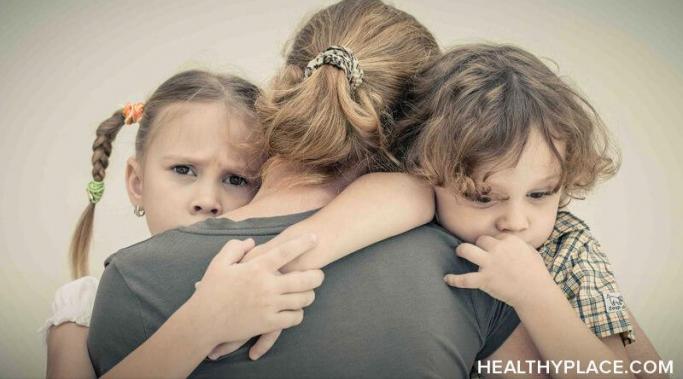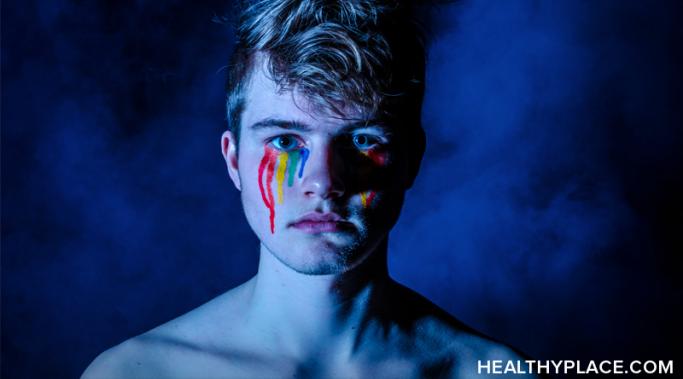Dating someone with an eating disorder can be challenging. I know every single one of my past relationships was affected by my eating disorder, and while there are undeniably things I could have done differently, there are also things I wish I'd been able to articulate to my exes to make the relationship easier.a
Family Relationships
I understand it's a privilege to have a solid and committed eating disorder support network. I know that some people must fight the treacherous current of their eating disorders alone. But I am fortunate to pursue recovery with the relentless encouragement of so many loved ones around me, and I just feel compelled right now to share an open letter to those in my eating disorder support network who stuck with me throughout this entire ordeal.
It's been crucial for me to learn how to help others in eating disorder recovery without derailing my own since I both mentor young women with eating disorders and am vocal about my own healing from anorexia. I often find myself on the receiving end of phone calls, text messages, and coffee dates which tend to start with the conversation opener, "I don't know who else I can trust to share this with, but I have an issue with food and body image. Can we talk about it?"
Celebrating your birthday in eating disorder recovery can be challenging. So many celebrations in life are riddled with expectations, and for those of us in any sort of recovery, the weight of these expectations can feel crippling.
The term "social distancing" has become part of our culture's mainstream lexicon over the past few months, but for the sake of those in eating disorder (ED) recovery (or any mental health issue, for that matter), can we please not call it social distancing anymore? The idea of creating barriers socially between ourselves and other people can exacerbate the sense of isolation or disconnection that many individuals who battle eating disorders are already too familiar with. In fact, experts within the field of public health agree the phrase is harmful and advocate that it be known as "physical distancing" instead.
It's official: The holiday season has arrived, and Thanksgiving is just around the corner which means that eating disorder (ED) survival tips are now more important than ever. This time of year is known for family traditions and cultural festivities, but it can also feel like a burden if you are in recovery from an eating disorder. Maybe there's a relative who points out the number of calories everyone is about to consume at the dinner table. Perhaps your well-intentioned grandmother hounds you to take seconds on dessert or the conversation detours to how "healthy" and "normal" your weight has started to look.
Culturally, eating disorders are often associated with young teenagers who don't know exactly how to cope with their developing bodies or fluctuating dynamics in their families and peer groups. But as teens become older and transition from high school to the broader world of a university campus, they can be even more susceptible to disordered eating behaviors. The risk of eating disorders in college students has continued to escalate these past several years, and there are multiple reasons behind the persistence of this issue.
Are eating disorders hereditary? What is the connection between eating disorders and heredity? Are some people more genetically predisposed to these illnesses than others? Sure, psychosocial factors—such as environmental influence and media exposure—can lead to disordered eating behaviors, but what about the biological piece? It strikes me as curious that my mother, grandmother, and great-grandmother all exhibited tendencies around both food and body image that I know to be consistent with eating disorders. And moreover, I cannot help but wonder if there is a genetic link between these patterns of generational dysfunction and my own battle with anorexia. So this curiosity has prompted me to delve into what science might reveal in terms of eating disorders and heredity.
While anorexia, bulimia, and other related illnesses can affect the members of any population, evidence shows eating disorders have a disproportionate impact on youth in the lesbian, gay, bisexual, transgender, queer (LGBTQ) community. As of 2018, more than 50 percent of U.S. residents between the ages of 13 and 24, who self-identify as LGBTQ, have suffered from an eating disorder at some point in their lives. This research is based on a nationwide survey of 1,034 people within this demographic, and it stands to reason, this steep percentage is a result of the unique obstacles or traumas that LGBTQ individuals often experience. So let's discuss how eating disorders can impact youth in the LGBTQ community—and how to support those who face this painful reality.
As if this illness was not destructive enough already, a harrowing trend has developed in recent years, whereby the presence of eating disorders in young children has become more and more rampant. In fact, the number of children under the age of 12 who exhibit symptoms of an eating disorder has risen to the extent that anorexia and bulimia are now more common pediatric illnesses than type-2 diabetes. This is an alarming data point and combined with the reality that eating disorders are often undiagnosed or inadequately treated, this leaves many children at an increased risk for complications in both their physical growth and mental health as they become older. For this reason, it is crucial to understand how to identify the presence of eating disorders in young children, then to seek prompt and thorough intervention for them.









